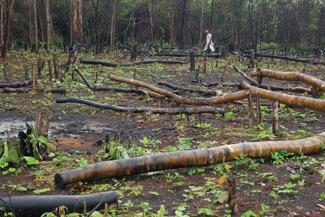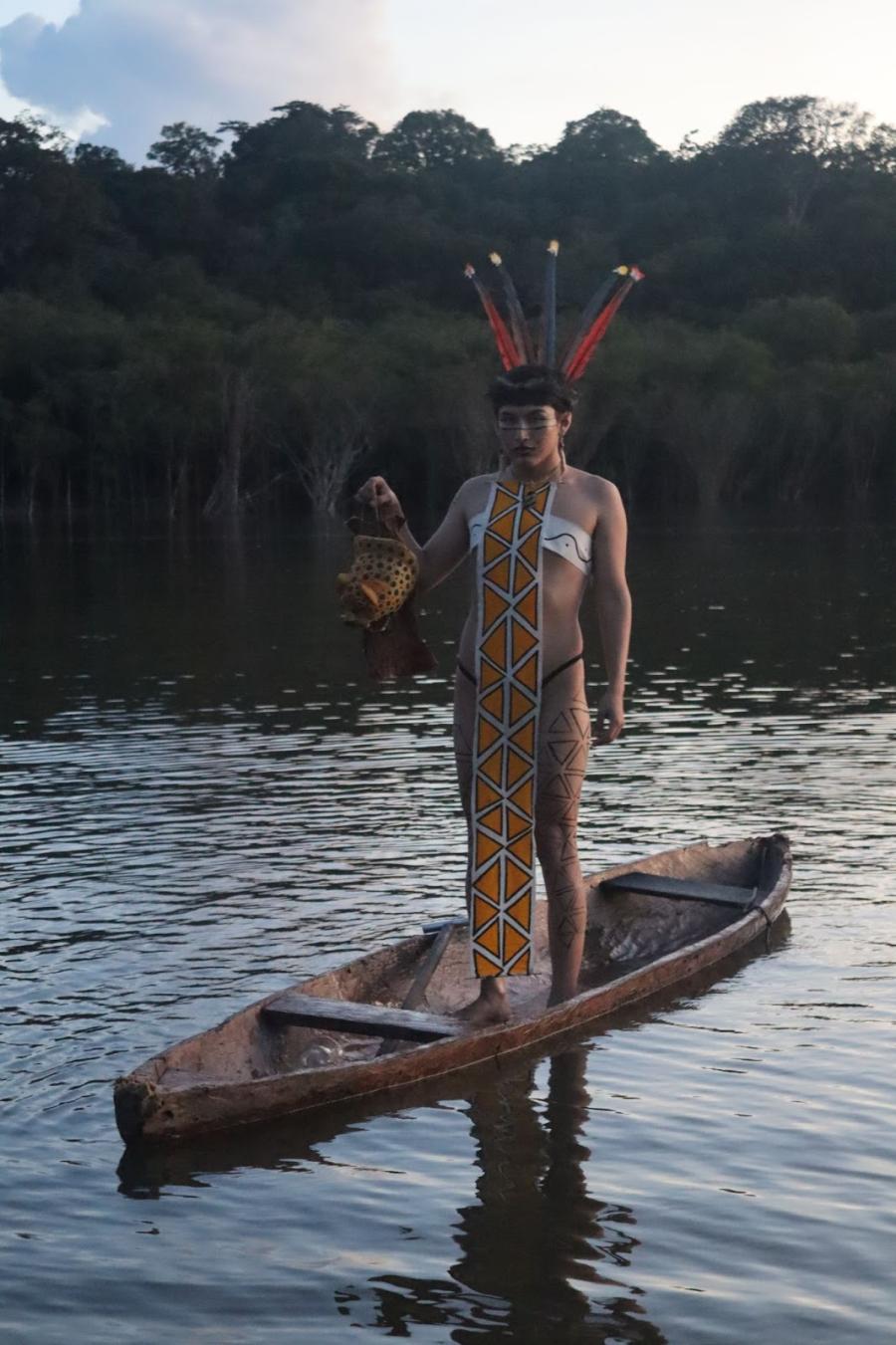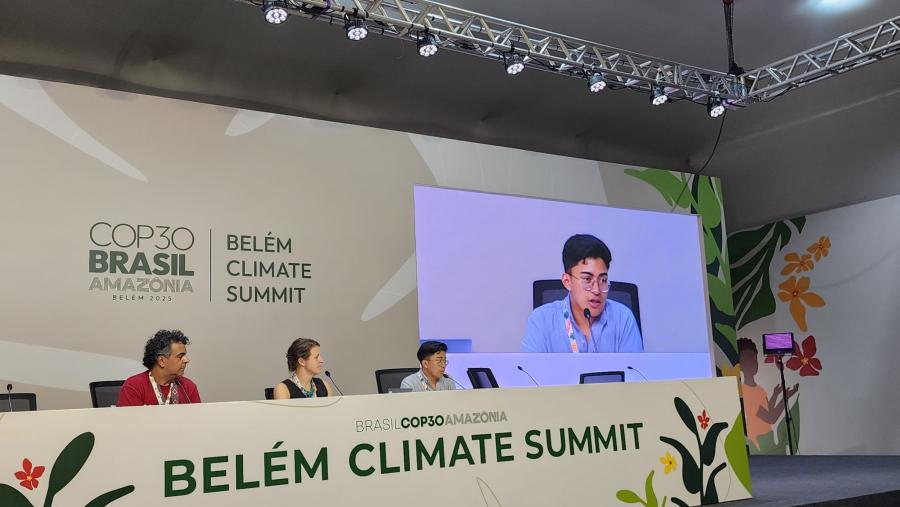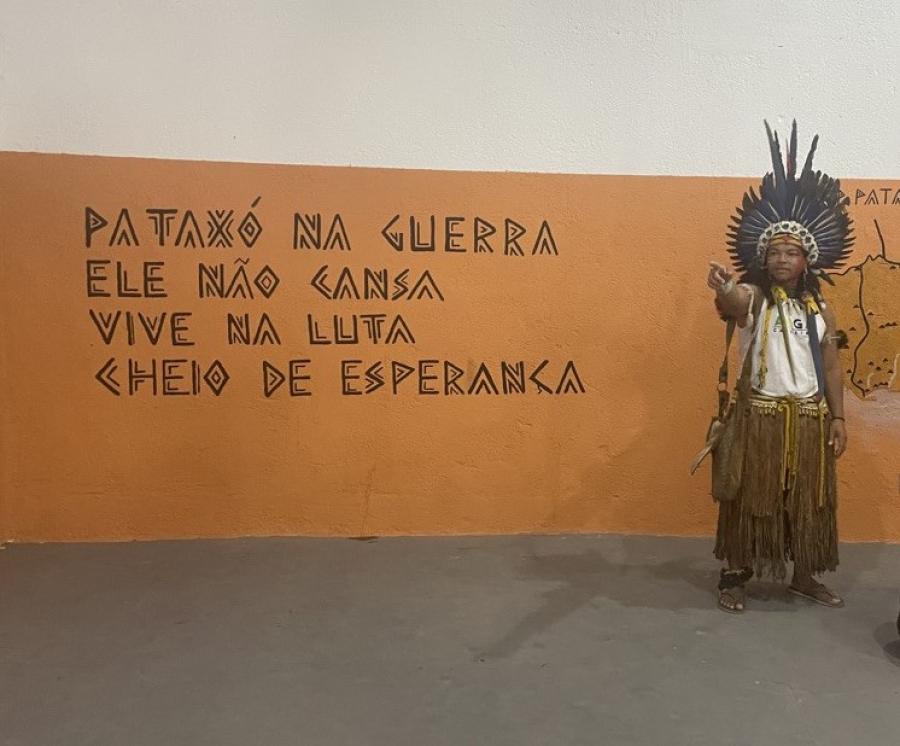
“Sustainable development is based on the principle that the right to development must be fulfilled so as to equitably meet developmental and environmental needs of present and future generations.” —1992 Rio Earth Summit
Coinciding with Cultural Survival’s (CS) 40th anniversary is the United Nations Conference on Sustainable Development (Rio+20) that will take place in Rio de Janeiro, Brazil on June 20–22, 2012. It is a follow up to the 1992 United Nations Conference on Environment and Development, also known as the “Rio Summit” or “Earth Summit.” The Earth Summit has influenced all subsequent UN conferences, which have examined the connection between human rights, development, and the need for environmentally sustainable development. For many environmentalists, the first Earth Summit was the beginning of a global environmental movement.
1992: The Beginning of a Global Environmental Movement
In 1992, some 172 governments and 2,400 representatives of non-governmental organizations (NGOs) attended the Summit, with over 17,000 people at the parallel NGO event “Global Forum.” Maurice Strong, Conference Secretary-General, called the Summit a “historic moment for humanity.” The Summit was also an important development for Indigenous Peoples and their rights related to the environment. The Summit acknowledged that Indigenous Peoples have a critical role to play in managing the environment. The importance of Indigenous Peoples’ traditional knowledge was recognized, and the international community committed itself to promoting and protecting the rights, knowledge, and practices of Indigenous Peoples. The Summit adopted three major agreements aimed at changing the conventional approach to development: the Rio Declaration on Environment and Development—principles defining the rights and responsibilities of governments, Agenda 21—a blueprint for action to achieve sustainable development worldwide based on Karioca Declaration of Indigenous Peoples, and Forest Principles—principles for sustainable management of forests worldwide. In addition, two legally binding conventions intended to prevent climate change and the eradication of the diversity of biological species were opened for signature at the Summit, the Convention on Biological Diversity (CBD), and the Framework Convention on Climate Change (UNFCCC)—which led to the Kyoto Protocol.
The Convention on Biological Diversity
The Convention on Biological Diversity is significant for Indigenous Peoples, as they account for most of the world’s cultural diversity. Of the estimated 6,000 cultures in the world, between 4,000 and 5,000 are Indigenous. Around three-quarters of the world’s 6,000 languages are spoken by Indigenous Peoples. In addition, many of the areas of highest biological diversity are inhabited by Indigenous Peoples. The 17 nations that are home to more than two-thirds of the Earth’s biological resources are also the traditional territories of Indigenous Peoples, exhibiting a high correlation between areas of biological diversity and areas of cultural diversity. The CBD is a legally binding international treaty that promotes international cooperation to sustainably manage and conserve the world’s biological resources. Its three primary objectives are to conserve biological diversity, promote the sustainable use of, and promote the fair and equitable sharing of biological resources. The CBD, in a number of provisions, recognizes the dependence of many Indigenous communities on biological resources and need to share the benefits that come from using traditional knowledge to conserve biological diversity. Governments that have adopted the CBD are obliged to amend or introduce domestic legislation and policies to ensure the participation of Indigenous Peoples in the conservation and sustainable use of their environment. The 1992 Earth Summit made the world aware that traditional lands and natural resources are essential to the economic and cultural survival of Indigenous Peoples. Unfortunately, many of the agreements made in Rio have not been implemented and governments have fallen short of their goals.
2012: Assessing Implementation and Respecting Rights
Rio+20 is aimed at assessing the implementation of international commitments that came out of first Earth Summit in 1992. The catch-all theme for this summit will be the “Green Economy,” a term now used in various contexts ranging from energy and labor policies to investment decisions. To some, this is merely another way to rename market solutions in favor of the private sector, rather than a true commitment to the environment. Many have voiced concerns that Indigenous Peoples’ rights will be disregarded. Participants will propose reforms aimed at ensuring more holistic and rights-based actions on global environmental and development issues. Governments will discuss the meaning, definition, principles of the “Green Economy” and action needed to implement it for sustainable development. Yet, already, the “Zero draft,” a draft negotiating document, fails to clearly define binding targets and actions for governments and the private sector.
Parallel to Rio+20, from June 16–19 2012, Indigenous Peoples will convene a Global Conference of Indigenous Peoples on Self-determined and Sustainable Development. In addition, the People's Summit for Social and Environmental Justice will take place on June 15–23, also in Rio. Both events are an important response by civil society to the failures foreseen in Rio+20. Two of the pressing issues that many perceive as UN deficits include the momentum to stop encroachment of extractive industries and the lack of a strong policy toward the implementation of Indigenous rights to free, prior and informed consent. Participants will share experiences of sustainable environmental conservation and natural resource management practices based on traditional knowledge. The
connection between land rights and sustainable paradigms will be highlighted. Respect, protection, and fulfillment of the UN Declaration on the Rights of Indigenous Peoples (UNDRIP) is a central
demand of Indigenous Peoples at Rio+20. In their participation and statements to the Zero Draft, a draft negotiating document, Indigenous representatives have demanded that UNDRIP must be “the” standard and framework for sustainable development, Indigenous Peoples’ cultures must be added to the three “pillars” of sustainable development, Indigenous Peoples’ rights to land must be respected, protected, and fulfilled, and Indigenous knowledge should be valued and included.
Cultural Survival’s Executive Director, Suzanne Benally, will be one of thousands of Indigenous representatives who plan to assure any strategies implemented contain an Indigenous perspective and respect Indigenous Peoples’ rights. According to Benally, “Everyday Indigenous people are losing food systems, economic livelihoods, social, cultural spiritual ways of life as a result of the loss of the ecosystems they depend on. We can’t ignore climate change and the consequences of rapidly disappearing ecosystems. Indigenous people living in close relationship to the land can no longer respond or adapt as they might have in the past.” Precisely because of their traditional knowledge and understanding of the interconnectedness of human beings to place and land, Indigenous voices must be recognized and honored. “Our work and everyone’s work is to assure that the voices of Indigenous Peoples are heard and that their rights to their lands, languages, and cultures are at the center of the discussion and policy setting,” Benally emphasizes.
To Indigenous Peoples there is urgent action needed to honor and implement human rights mechanisms such as UNDRIP. This is should be expected from all the delegates who will attend Rio+20. Anything less diminishes the sacredness that is inherent in Indigenous belief systems inextricably tied to the environment and fragile ecosystems. To Benally, every human on the planet has a responsibility. “The challenges Indigenous Peoples face are not insular,” she says. “What happens to us, happens to every human being.”



